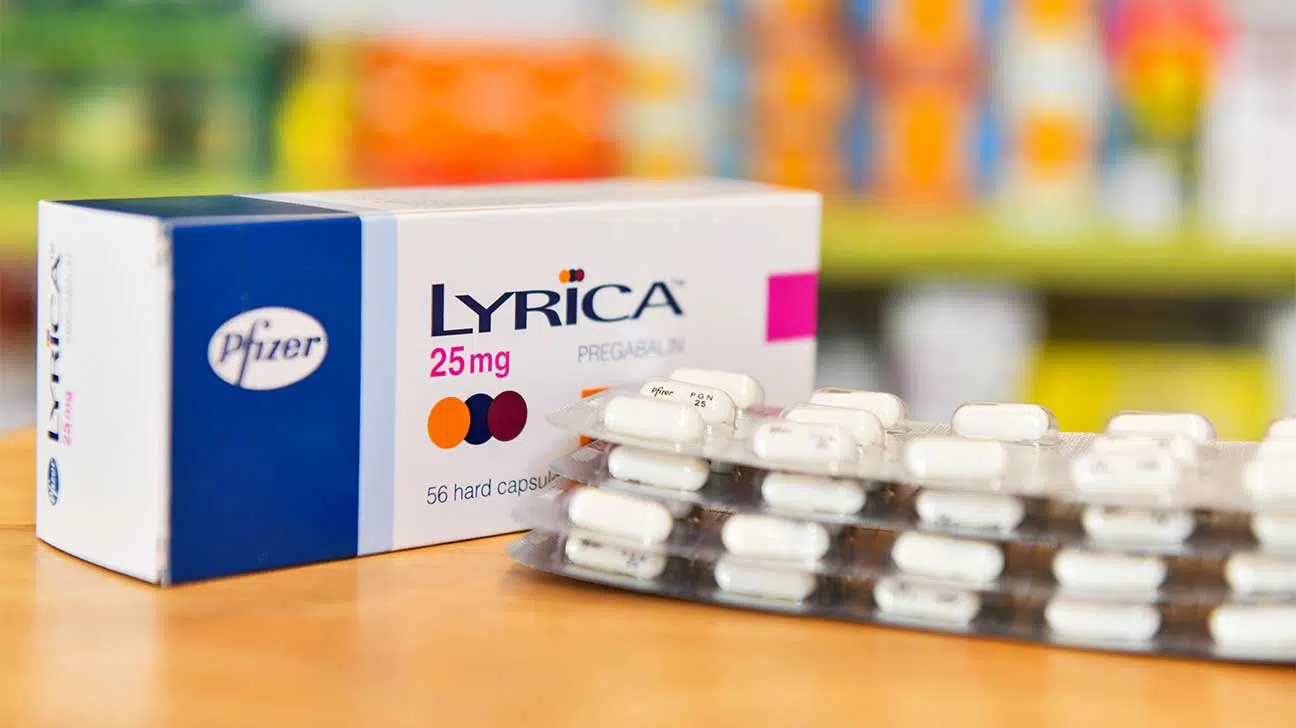
Lyrica, a brand name for the drug pregabalin, which can help to relieve certain types of pain.
Although Lyrica is safe for use when taken as directed, misusing Lyrica by taking it in ways other than prescribed can lead to physical dependence and drug addiction.
In recent years, pregabalin misuse has become a growing concern and risk, particularly among those who have a history of opioid abuse or benzodiazepine abuse.
What Is Lyrica Used For?
Pregabalin is an anticonvulsant drug that depresses central nervous system (CNS) activity. Lyrica is a controlled substance that belongs to a class of drugs known as gabapentinoids
It is generally prescribed for the treatment of neuropathic pain (nerve pain) in the hands, feet, legs, fingers, or toes that is associated with certain medical conditions.
For example, Lyrica can treat pain caused by:
- diabetes
- shingles
- spinal cord injuries
- fibromyalgia
It is also sometimes prescribed along with other medications for epilepsy, hot flashes associated with menopause, generalized anxiety disorder, and restless leg syndrome.
Pregabalin (Lyrica) Abuse And Addiction
Pregabalin is safe and effective when taken as prescribed. But, studies on drug use show it is also sometimes misused for its effects.
In high doses, Lyrica can cause euphoric effects, or a “high,” similar to benzodiazepines like Valium (diazepam), which are typically prescribed for mental health conditions and insomnia.
Other side effects of Lyrica can include:
- dizziness
- slower breathing
- confusion
- lethargy
- nausea and vomiting
- anxiety
- difficulty concentrating
- weight gain
- dependence
According to research, Lyrica misuse has become more common in recent years among people who have a history of abusing opioids — another type of addictive painkiller.
The Connection Between Lyrica And The Opioid Crisis
Although Lyrica can help relieve certain types of pain, it’s not an opioid. Generally, it is easier to acquire than prescription opioids like oxycodone, hydrocodone, and fentanyl.
Opioid prescriptions today are subject to stringent regulations, which in some cases vary by state, as a result of the rise of the U.S. opioid epidemic and opioid overdose deaths.
Lyrica may also sometimes be prescribed as a pain medication alternative to opioids for those who do have a substance abuse history.
Signs Of Pregabalin Abuse
Lyrica abuse has grown more common in recent years. If you or a loved one is taking Lyrica, or the generic pregabalin, here are some common warning signs of drug misuse.
Signs of Lyrica abuse might include:
- taking higher doses than prescribed
- taking doses more frequently than directed
- taking it for reasons other than prescribed
- snorting Lyrica pills
- lying about one’s drug use
- preoccupation with taking/getting more Lyrica
- mixing Lyrica with other drugs for stronger effects
- experiencing symptoms of withdrawal
Lyrica is also bought and sold on the black market, also known as the unregulated drug market, similar to other prescription medications with an abuse potential.
What Are The Signs Of Pregabalin Addiction?
Addiction is a chronic disease that can develop from a repeated pattern of drug or alcohol abuse, or the compulsive repetition of certain behaviors, like gambling.
Once addicted to a drug, you may feel either unwilling or unable to cut down on your drug use. You may experience withdrawal, drug cravings, and feel as though you rely on it just to feel “normal.”
Dangers Of Pregabalin Misuse And Addiction
Something important to understand about the addictive potential of prescription drugs like Lyrica is the potential risks and dangers of developing a prescription drug addiction.
With Lyrica, the primary concerns are a risk for overdose — since it is often misused with other sedatives — and effects on mental health, like psychosis, anxiety, or suicidal thoughts.
Signs Of Overdose
Pregabalin is unlikely to cause life-threatening effects of overdose when taken alone.
But severe, even life-threatening overdose can occur if it is mixed with other depressants, such as alcohol, opiates (including heroin), and benzodiazepines.
Treatment from medical professionals may be required in order to reverse the effects of an overdose.
Signs of an overdose might include:
- slow, shallow, or stopped breathing
- seizures
- weak pulse
- very low blood pressure
- sleepiness/excessive drowsiness
- loss of consciousness
- inability to rouse
Is Lyrica Addiction Common?
Misuse of Lyrica is believed to be more common today than it was when the drug was first manufactured in the early 2000s, largely due to its connection to the opioid epidemic.
Toxicology reports, for instance, are increasingly showing a presence of gabapentinoids like Lyrica and Neurontin (gabapentin) in people’s systems at the time of an overdose.
Getting Help For Pregabalin Abuse
Overcoming an addiction to Lyrica is possible with the right addiction treatment program.
At AddictionResource.net, we have a team who’s ready to help you or a loved one find treatment options that are capable of meeting your or your loved one’s needs.
Don’t wait. Call our helpline today to learn more about available treatment options, or to find a treatment program for Lyrica addiction at a rehab center near you.
Addiction Resource aims to provide only the most current, accurate information in regards to addiction and addiction treatment, which means we only reference the most credible sources available.
These include peer-reviewed journals, government entities and academic institutions, and leaders in addiction healthcare and advocacy. Learn more about how we safeguard our content by viewing our editorial policy.
- U.S. Drug Enforcement Administration (DEA) — Controlled Substances - Alphabetical order
https://www.deadiversion.usdoj.gov/schedules/orangebook/c_cs_alpha.pdf - U.S. National Library of Medicine: MedlinePlus — Pregabalin
https://medlineplus.gov/druginfo/meds/a605045.html - U.S. National Library of Medicine: PubMed — Abuse and Misuse of Pregabalin and Gabapentin
https://pubmed.ncbi.nlm.nih.gov/28144823/ - U.S. National Library of Medicine: PubMed — How addictive are gabapentin and pregabalin? A systematic review
https://pubmed.ncbi.nlm.nih.gov/28988943/


